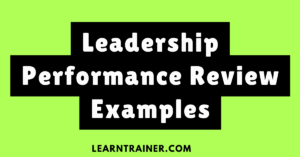We’ve all been there. The moment you walk into an English-speaking exam and realize you’re not just testing your language skills but also your ability to stay calm under pressure.
I’ve had my fair share of exams, and trust me, the anxiety that comes with speaking in a language that’s not your first can feel overwhelming. But here’s the thing: it doesn’t have to be a stressful ordeal.
In this post, I’ll share real, actionable advice on what to talk about in your English-speaking exam.
This won’t be a generic “practice these common questions” list. Instead, I’ll break down practical strategies, explain why certain topics come up, and give you examples that you can tailor to your own experiences.
By the end, you’ll have a clear plan for your speaking exam and be ready to tackle whatever questions come your way.
The Key Areas of the English Speaking Exam
Let’s start by looking at the typical structure of an English-speaking exam. No matter the specific test (IELTS, TOEFL, Cambridge, or any other), the format generally consists of three sections:
- Introduction and Personal Questions (Part 1)
- Main Topic Discussion (Part 2)
- Discussion and Opinion (Part 3)
Knowing the format helps you prepare and understand the types of questions you can expect. Let’s break each section down and dive into what you can talk about.
Personal Questions (Part 1)
In the first part of your exam, you’re usually asked simple, personal questions. Think of it like a casual conversation with the examiner. This is your chance to establish a connection, so keep your responses friendly and natural.
What to Expect:
- Questions about your home, hobbies, work, studies, family, and daily routines.
- These questions are meant to test your ability to speak about familiar topics using clear, concise sentences.
Examples:
- “Where are you from?”
- “What do you do in your free time?”
- “Tell me about your hometown.”
- “What’s your favorite type of music?”
Tips for this section:
- Be honest, but make sure to expand on your answers. If asked about your hobbies, don’t just say, “I like reading.” Add more details: “I enjoy reading historical novels because they allow me to learn about different cultures and perspectives.”
- Stay calm and confident. It’s easy to freeze up when you’re nervous, but remember—this section is all about getting you to feel comfortable speaking.
- Avoid one-word answers. Even if the question seems simple, it’s a chance for you to show how well you can elaborate.
Main Topic Discussion (Part 2)
Part 2 of the exam generally involves a more in-depth conversation about a specific topic. The examiner might give you a prompt or a set of questions to guide your response. For example, you might be asked to describe a place you’d like to visit or explain a memorable event from your life.
What to Expect:
- You’ll be asked to talk about a specific topic for 1-2 minutes.
- The examiner may follow up with questions based on your response, so be prepared to elaborate.
Examples:
- “Describe a book that has had a big impact on your life.”
- “Talk about a trip you’ve taken that you really enjoyed.”
- “Describe a memorable celebration or event you’ve attended.”
Tips for this section:
- Structure your answer. It’s easy to ramble when you’re nervous, but a good structure will make your response sound more organized and professional. For example, start by introducing the topic, then provide some details, and finally conclude with why it was meaningful to you.
- Use descriptive language. The examiner wants to hear about the details of your experience. For example, instead of just saying, “I went to the beach,” you could say, “I went to a beautiful, quiet beach in southern Spain. The sun was setting, casting an orange glow across the water, and the sound of the waves was incredibly peaceful.”
- Take a moment to gather your thoughts. You don’t need to start talking immediately. Take a deep breath, and think about how you’ll structure your answer.
Discussion and Opinion (Part 3)
This section is where things get a little more challenging. Here, the examiner will ask you to share your opinions on more abstract topics, and you’ll be expected to provide reasoned arguments to support your views.
You’ll need to demonstrate that you can engage in a deeper conversation about important societal, environmental, or cultural issues.
What to Expect:
- You’ll be asked to discuss more abstract topics and explain your opinions on them.
- The examiner may ask follow-up questions to prompt you to elaborate or to defend your point of view.
Examples:
- “Do you think technology has made communication better or worse?”
- “How important is it for people to learn about other cultures?”
- “What are the benefits and drawbacks of living in a big city?”
Tips for this section:
- Take a clear stance. Even if you’re not 100% sure about a topic, give a clear answer. You can always say, “I think… because…” and back up your thoughts with reasoning.
- Use examples to support your points. For example, if asked about technology, you could mention how social media allows people to stay in touch, but also discuss the potential downsides, like misinformation.
- Avoid being vague. In this section, the examiner wants to hear more than just a surface-level opinion. They want to know how you think.
Common Mistakes to Avoid
To make sure you perform your best in the exam, there are a few common mistakes that you’ll want to steer clear of:
Overloading your answers with unnecessary details
While it’s great to elaborate, don’t go off on tangents. Keep your responses relevant to the question at hand.
Using filler words too much
Phrases like “um,” “uh,” “you know,” and “like” can make you sound less confident. While a few are natural, avoid overusing them, especially when you’re trying to make a point.
Speaking too quickly or too slowly
Find a balance between speaking too fast (which can make you sound nervous) and speaking too slowly (which can give the impression you’re unsure).
Not listening carefully to follow-up questions
Make sure you understand the examiner’s question before you respond. If you’re unsure, don’t hesitate to ask for clarification.
Failing to elaborate
It’s easy to give one-word or simple answers, but that doesn’t show off your English skills. Always try to explain your point in more detail.
Final Tips for Success
To wrap things up, here are a few more tips that will help you feel confident and prepared for your English speaking exam:
Practice regularly: The more you practice speaking in English, the more fluent and comfortable you’ll become. Try speaking to a friend, recording yourself, or joining a language exchange group.
Stay calm and take your time: If you don’t know the answer right away, it’s okay. Take a moment to collect your thoughts before speaking.
Be confident: The examiner isn’t looking for perfection. They want to see that you can communicate clearly and effectively in English. Don’t be afraid to make mistakes, and focus on making your points.
Table: Key Tips for Each Part of the Speaking Exam
| Section | Key Focus | Tips for Success |
| Personal Questions (Part 1) | Answering simple, everyday questions | Be detailed, avoid one-word answers, and elaborate on your responses. |
| Main Topic Discussion (Part 2) | Talking about a specific topic or experience | Use a clear structure (beginning, middle, end), be descriptive, and stay focused. |
| Discussion and Opinion (Part 3) | Sharing opinions and defending them | Take a clear stance, provide examples, and avoid vague answers. |
Conclusion
English speaking exams don’t have to be intimidating. With the right preparation and mindset, you can turn them into an opportunity to showcase your skills.
By practicing the strategies I’ve shared elaborating on your answers, staying calm, and structuring your responses you’ll be more than ready to ace the exam.
FAQs
How can I prepare for Part 1 of the speaking exam?
In Part 1, the examiner will ask you personal questions, so practice speaking about your hobbies, daily routines, and background. Focus on expanding your answers with details rather than providing short, one-word responses.
What should I do if I don’t know the answer to a question?
If you’re unsure, it’s okay to take a moment to think. You can say something like, “That’s an interesting question, let me think…” and then form a thoughtful response. Don’t rush clear answers are more important than fast ones.
How do I avoid sounding too repetitive in my answers?
Try to use a variety of vocabulary and sentence structures. Instead of repeatedly saying “I like,” you could say “I enjoy,” “I’m passionate about,” or “I prefer.” This will make your answers sound more natural and less mechanical.
Can I ask the examiner to repeat a question?
Absolutely! If you didn’t understand a question, politely ask the examiner to repeat it. You could say, “Sorry, could you please repeat the question?” or “I didn’t quite catch that could you clarify?”
What if I make a mistake during the exam?
Mistakes happen, and that’s perfectly fine. Just continue speaking confidently. Correct yourself if necessary, but don’t dwell on the errorkeep the conversation flowing smoothly. The examiner is more focused on how well you communicate overall.


